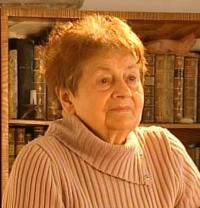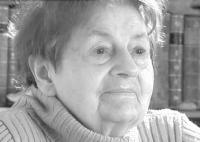They came, took him away and he did not come back; a year later they came again and took me from my three little children
Ružena Kramárová was born in 1918 in Vrútky. Her mother Zuzana was a housewife and her father Eugen Korda was an important railway official. Ružena had five siblings, three brothers and two sisters. Her eldest brother, Alexander Korda was a gunnery officer and since 1942 he was a member of illegal military resistance organization Victorie. He was also an active member of the anti-fascist resistance in the army and since September 10, 1944 he was in charge of the military training camp Oremov laz. He helped to arm the partisan units as well. During the Slovak National Uprising he was a commander of the 25th Foot Battalion and a co-operator of general Golian. After the February 1948 was Alexander along with his wife and the family persecuted, exposed to an inhuman tyranny and convicted to life imprisonment for alleged treason and espionage. This weakened his health a lot and he died in 1958 during the imprisonment. The whole family, including his siblings and their relatives were considered to belong to the enemies of the State. In 1941 his sister Ružena married a young architect Eugen Kramár, a son of an evangelic priest. After their moving to Bratislava, her husband worked as a university professor and as an architect he participated in building many projects. One day, the State Security officials came and took him away. Without stating a reason they sentenced him to spend fourteen years in prison. A year later they came to take Ružena as well, supposedly to confirm her husband´s testimony, however, she neither came back home soon. Three little children stayed alone. In years 1951 - 1952 she was unfairly imprisoned in Bratislava. Except the freedom she and her husband were deprived of their newly built house and it was given to them back twenty years later.


